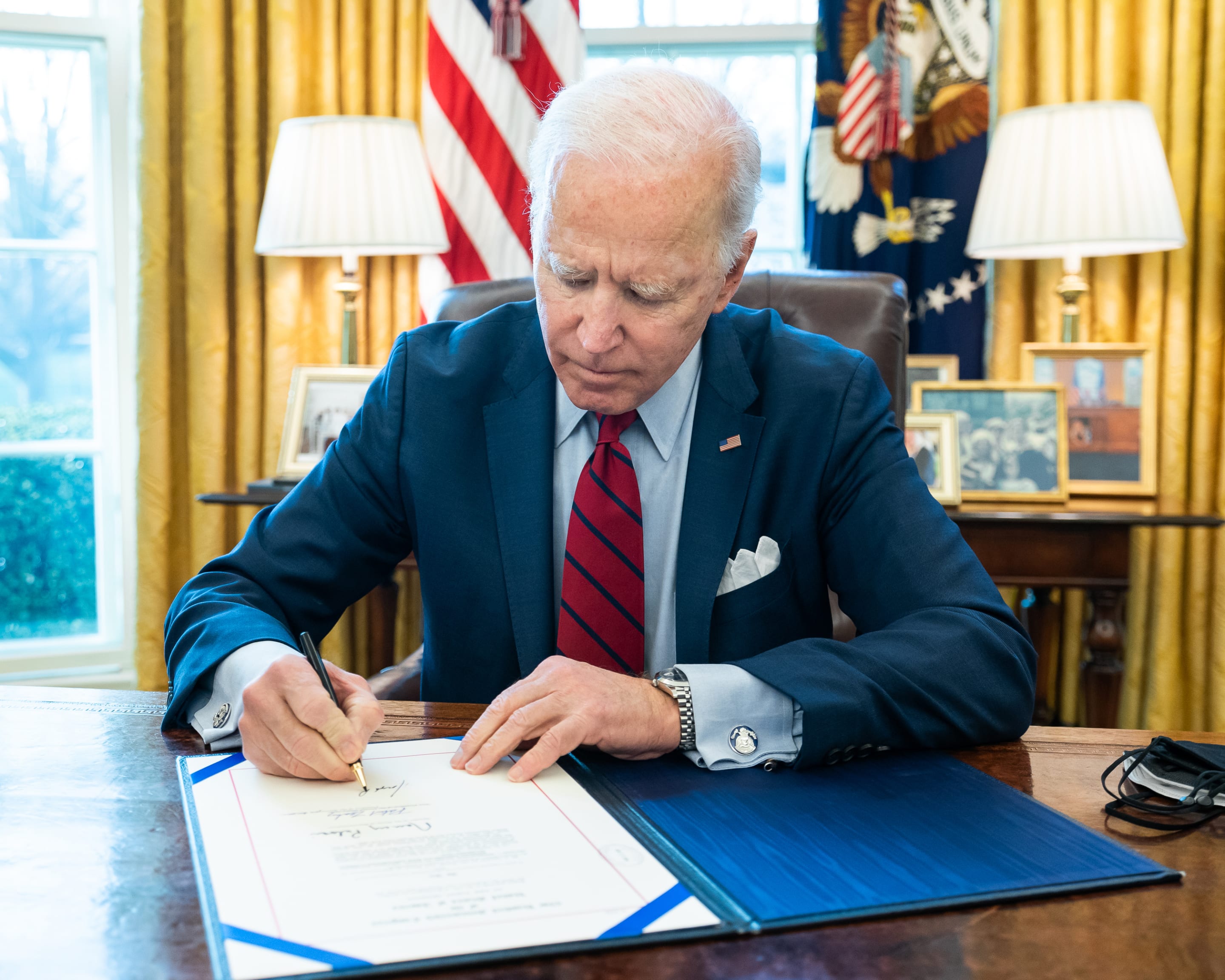
Should the Export-Import Bank be Reauthorized and Reformed? (H.R. 597)
Do you support or oppose this bill?
What is H.R. 597?
(Updated October 2, 2017)
This bill would reauthorize the Export-Import Bank through
September 2019, and reforms both its management hierarchy and the
policies that it operates under. It also contains provisions aimed at allowing the Export-Import Bank to facilitate private sector job creation, while increasing oversight of the banks activities.
The Bank’s lending cap would be reduced from $140 billion to $135
billion, and the minimum share of small business-related activity would
rise from 20 percent to 25 percent. There would be independent audits of
the Bank’s portfolio, and the Bank would be required to increases its
reserves held for losses.
A Risk Management Committee would be established, and a Chief Risk
Officer position would be created -- both of which would provide
oversight of the Bank’s operations. Also, a Chief Ethics Officer would oversee ethics practices among Bank employees.
The Treasury Secretary and the President would be directed to
enter into international negotiations to eliminate export credit
financing within 10 years of this bill’s enactment.
Argument in favor
These reforms will help ensure that the Export-Import Bank is a trustworthy steward of taxpayer dollars, while allowing it to continue helping American businesses sustain jobs and compete in the global economy.
Argument opposed
The Export-Import Bank is nothing more than taxpayer-backed corporate welfare. Export subsidies -- like those provided by the Ex-Im Bank -- don’t create jobs, and primarily help large, well-connected businesses.
Impact
Businesses utilizing the Export-Import Bank, the Export-Import Bank, the Department of the Treasury, Congress, and the Secretary of the Treasury.
Cost of H.R. 597
A CBO cost estimate is unavailable.
Additional Info
In-Depth: Rep. Stephen Fincher (R-TN), the lead sponsor of this bill, drafted what is known as a discharge petition to bring this legislation to the House floor without the approval of leadership. It gained the necessary 218 signatures among members of the House, and received 246 votes in favor when the House approved the petition — which allows the bill to receive an actual vote. Rep. Fincher explained why he advanced this legislation via a discharge petition rather than through normal channels:
“This Republican-led petition is a procedure to stand up to Washington’s broken system that is killing thousands of American jobs and jeopardizing thousands more. Our constituents expect us to fight for them and get the job done, but Congress has failed to even hold a vote to reform and reauthorize the Ex-Im Bank. We refuse to look any more hardworking Americans in the eye and say, ‘you lost your job because Congress refused to hold a vote.’ This cannot wait any longer. If we do not get this done for the American people, the only thing our country will be exporting is jobs.”
The Export-Import Bank (or Ex-Im Bank) has been criticized as corporate welfare because several of of the companies that benefit the most from its existence are among the largest corporations in the U.S. About 40 percent of the Ex-Im Bank’s 2014 authorizations benefited Boeing alone, and nearly two-thirds of the Bank’s 2013 money went to 10 U.S. companies that include General Electric, Caterpillar, and Ford along with Boeing. Of the $2.3 trillion that the U.S. exported in 2013, the Ex-Im Bank only approved $27.3 billion of loan guarantees for those which amounts to about 1.2 percent of the value of that year’s exports.
Proponents of the Ex-Im Bank point out that nearly 90 percent of the Bank’s total transactions involved small businesses, and in 2014 those transactions were valued at about $5 billion, making up around 20 percent of the total value of the Bank’s activity that year. It has also been noted by the Bank’s supporters that these activities supported over 160,000 U.S. jobs in 2014.
Of Note: The Export-Import Bank was reauthorized in September 2014 for nine months, meaning that it is due to expire on June 30, 2015. In addition to doubts about the Ex-Im Bank’s benefits, it has been maligned for its cost -- its price tag was estimated at $2 billion between 2015 and 2024 by the Congressional Budget Office.
Doubts about the long-term survival of the Ex-Im Bank date back at least as far as December 2011, when the White House drafted a contingency plan to be put into place if Congress failed to authorize the Bank’s appropriations during that budget cycle.
Media:
- Sponsoring Rep. Stephen Fincher (R-TN) Press Release
- The Hill
- Roll Call
- Politico
-
Wall Street Journal
-
Washington Post
- U.S. Chamber of Commerce (In Favor)
- Daily Caller (Op-Ed - In Favor)
- Wall Street Journal (Debate)
- National Review (Opposed)
- National Taxpayers Union (Opposed)
-
Congressional Research Service (Context)
(Photo Credit: Flickr user jdnx)
The Latest
-
 Biden Signs Ukraine, Israel, Taiwan Aid, and TikTok BillWhat’s the story? President Joe Biden signed a bill that approved aid for Ukraine, Israel, and Taiwan, which could lead to a ban read more... Taiwan
Biden Signs Ukraine, Israel, Taiwan Aid, and TikTok BillWhat’s the story? President Joe Biden signed a bill that approved aid for Ukraine, Israel, and Taiwan, which could lead to a ban read more... Taiwan -
 Protests Grow Nationwide as Students Demand Divestment From IsraelUpdated Apr. 23, 2024, 11:00 a.m. EST Protests are growing on college campuses across the country, inspired by the read more... Advocacy
Protests Grow Nationwide as Students Demand Divestment From IsraelUpdated Apr. 23, 2024, 11:00 a.m. EST Protests are growing on college campuses across the country, inspired by the read more... Advocacy -
 IT: Here's how you can help fight for justice in the U.S., and... 📱 Are you concerned about your tech listening to you?Welcome to Thursday, April 18th, communities... Despite being deep into the 21st century, inequity and injustice burden the U.S. read more...
IT: Here's how you can help fight for justice in the U.S., and... 📱 Are you concerned about your tech listening to you?Welcome to Thursday, April 18th, communities... Despite being deep into the 21st century, inequity and injustice burden the U.S. read more... -
 Restore Freedom and Fight for Justice With GravvyDespite being deep into the 21st century, inequity and injustice burden the U.S., manifesting itself in a multitude of ways. read more... Criminal Justice Reform
Restore Freedom and Fight for Justice With GravvyDespite being deep into the 21st century, inequity and injustice burden the U.S., manifesting itself in a multitude of ways. read more... Criminal Justice Reform
 Climate & Consumption
Climate & Consumption
 Health & Hunger
Health & Hunger
 Politics & Policy
Politics & Policy
 Safety & Security
Safety & Security
